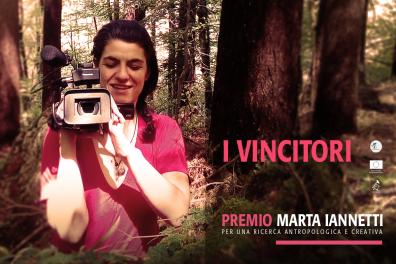Maria Coma-Santasusana (Ifrae), winner of the Marta Iannetti Prize

After a lengthy evaluation process, the jury of the Marta Iannetti Prize - for anthropological and creative research - has named the winners in the master's and doctoral thesis categories in anthropology.
A total of 22 master's theses and 21 doctoral theses were received.
Doctoral thesis winner:
Maria Coma-Santasusana - "Troupeaux de vie. Anthropological study of a pastoral community in northeastern Tibet" | Institut National de Langues et Civilisations Orientales (Ifrae-Inalco), Paris.
The Award Ceremony and presentation of the winning works will take place at the University of Teramo in December 2025.
The Partnership:
Bambun APS - Tramontana Network
Iannetti Family
University of Teramo - Department of Communication Sciences
Don Nicola Jobbi Study Center
Municipality of Teramo
Municipality of Pietracamela
Department of History, Culture and Civilization of the Alma Mater Studiorum - University of Bologna
Centre for Personalist Research ETS
Teknoalp Association
SIAC - Italian Society of Cultural Anthropology
SIAA - Italian Society of Applied Anthropology
ANPIA - Italian National Professional Association of Anthropology
The purpose of the Tramontana Network is the documentation, processing, analysis, restitution and dissemination, through innovative, participatory and dynamic means, of the intangible cultural heritage of Europe's rural and mountain societies. This approach is inspired by the principles set out in the Convention for the Safeguarding of the Intangible Cultural Heritage, adopted in Paris on October 17, 2003 by UNESCO. Formed in 2011, the Tramontana Network today comprises eleven members from seven different countries, working in Spain (1), France (3), Italy (3), Poland (1), Romania (2) and Albania (1), plus numerous associated partners in member countries.
All these entities, which have histories, missions, approaches and methodological approaches that are both different and complementary, recognize each other and unite around the safeguarding and restitution of the intangible cultural heritage of the European mountains where they operate.
In the context of the present project, based on our direct and extended knowledge of the terrain, by "intangible cultural heritage" we mean the practices, representations, expressions, knowledge, as well as the associated tools, objects, artifacts and cultural spaces that local communities or individuals recognize as constitutive of their cultural heritage.